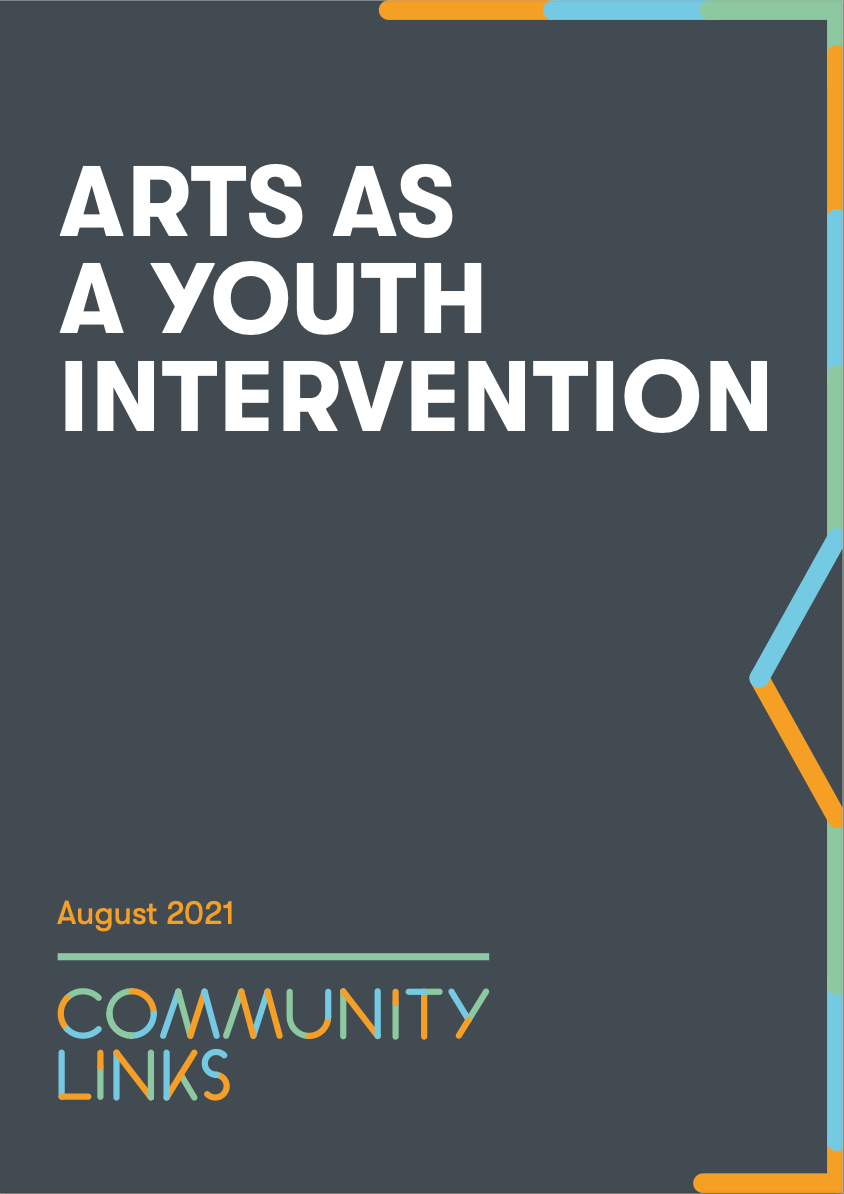
The COVID-19 pandemic restructured civilian life in an unimageable way and young people are now facing mounting socio-economic disruptions, presenting new challenges to their education, well-being, career prospects and personal development. Amid the chaos of the pandemic, families in the poorest parts of England are suffering the most, with some councils reducing spending on early intervention services by over 80%¹, driving a greater reliance on crisis interventions. Against this backdrop of uncertainty, it is critical to restore hope for younger generations and work towards meaningful change. This timely paper sets out how arts interventions can be positioned to support young people beyond the pandemic and create a secure future.
With a growing body of evidence supporting the link between active arts engagement and positive life outcomes, arts as a youth intervention can aid the development of younger generations. Turning this evidence into action means weaving arts interventions into community practices, making them accessible and affordable for service users. These interventions can then be used to address several difficulties that young people face by supporting career outcomes; expanding informal learning; promoting good well-being; and strengthening preventative and early action strategies that support developmental outcomes. Nurturing arts initiatives can also become a catalyst for local regeneration, increasing community participation and cohesion. In line with the governments Build Back Better initiative, the development of creative placemaking can help strengthen and transform communities.
Investments that empower local authorities to support community arts practices are fundamental to delivering effective creative services. As local authorities respond to years of austerity, the role of the arts in community settings has faded. In efforts to protect key services, the arts and culture sector has seen a massive reduction in funding.
A noticeable decrease in youth services and large-scale funding withdrawals from artistic services prevents these interventions from making sustained progress. With young people from marginalised backgrounds being directly and disproportionately affected by budget cuts, creative arts opportunities often cease to exist in their communities. Central to our recommendations is to ensure that arts intervention reaches all young people - particularly those in low-income communities and widens the pool of creative talent.
As the benefits of artistic practices are not being enjoyed equally, a profound rethink is needed to create an inclusive and diverse creative environment for young people. If you are from a BAME background, disabled, come from a lower socioeconomic group, or don’t have higher level qualifications, you are less likely to have participated in the arts in the past 12 months². The clear association between socioeconomic status and the likelihood of attendance at arts and cultural events³ means that for many young people from poorer backgrounds, local arts organisations may be their first introduction to the arts.
This publication addresses a range of audiences; parliamentarians, artists, arts organisations, educators, funders, service users and the public. The key to progress will be coming together to address inequalities in arts engagements and promote inclusive interventions for young people.